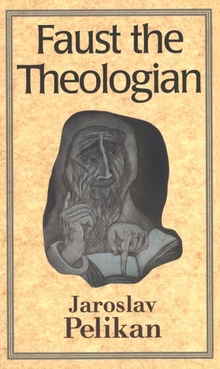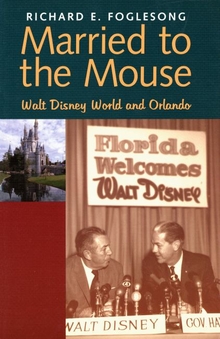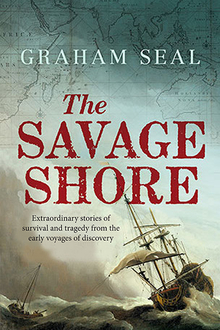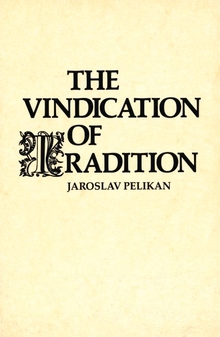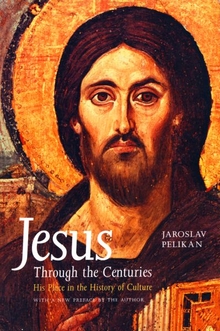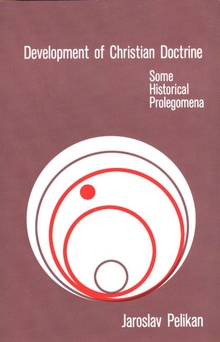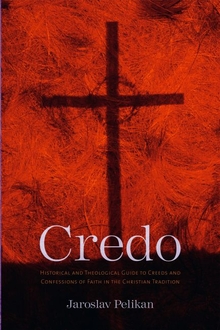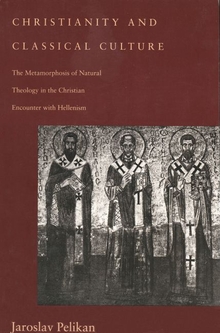Faust the Theologian
WARNING
You are viewing an older version of the Yalebooks website. Please visit out new website with more updated information and a better user experience: https://www.yalebooks.com
Jaroslav Pelikan
Pelikan begins by discussing Faust's role as natural scientist or pantheist. He examines Faust's disenchantment with traditional knowledge, considers his interests in geology, oceanography, and optics, and analyzes his perception of nature as a realm inspirited throughout by a single unifying Power. Pelikan next follows Faust on his journeys to the two Walpurgis Nights, where he shows how Faust reveals his delight in the polytheistic extravaganzas of Germanic and especially of Greek mythology. Finally Pelikan describes the operatic finale of the book, where Faust's spirit is drawn upward to salvation by the Eternal Feminine, and he argues that this marks Faust's evolution into moral philosopher and monotheist. Pelikan's analysis thus reveals thematic unities and a dialectical development of Faust's character that have been unnoticed heretofore.
A selection of Readers’ Subscription and the History Book Club
"Mr. Pelikan's book packs a wealth of observation on an enormous range of subjects into its few pages. Sexual love, beauty, natural philosophy, nobility, spiritualism, sorcery, magic, mysticism, charity and many other things occupied Goethe's capacious mind. Mr. Pelikan illuminates those issues with mastery and grace, and in passing tells us many urgent truths about ourselves as well."—Robert Royal, Washington Times
"There is an absence of all cumbersome scholarly jargon that makes the work eminently intelligible and enjoyable. . . . Pelikan's study of Goethe's Faust is well worth our while. It may even lead to a renewed interest in Goethe's frequently mentioned but rarely read drama."—Wolfgang Taraba, German Life
"Faust the Theologian is dedicated to the late Canadian scholar Northrop Frye, who, according to Pelikan, was blessed with the rare gift of 'combining literary scholarship and theological scholarship without confusing them'. If there is one person who is able to carry the torch of Frye, it is certainly the author of this essay, which demands to be read—read neither as theology nor literary criticism, but as a work of a new genre, in which illumination, not argument, takes center stage."—J. M. Shields, McGill University
"An elegant essay, written with clarity and vigor for nonspecialist and specialist readers of Faust."—Theodore Ziolkowski, Princeton University
"[An] exquisite piece of erudition. . . . As a masterfully creative reading . . . Faust the Theologian delights. . . . [It] demands to be read—read neither as theology nor literary criticism, but as work of a new genre, in which illumination, not argument, takes center stage."—J.M. Shields, Arc
"There is an absence of all cumbersome scholarly jargon that makes [this] work eminently intelligible and enjoyable. . . . An accomplishment of true distinction. . . . Pelikan's study of Faust is well worth our while."—Wolfgang Taraba, German Life
"Even a cursory glance at the text reveals Pelikan's truly impressive grasp of over one hundred years of Faust scholarship and interpretation, a breadth of knowledge which would put most Germanists and many experts to shame. . . . [Pelikan's] often intimate, frequently expansive, and always stimulating observations are readily accessible to the novice and fascinating for the expert."—Nicholas Vazsonyi, German Studies Review
"Both scholarly and amateur readers of Faust the Theologian will be finely instructed by Pelikan's subtle treatment of the West's most ambiguous epic."—Ralph C. Wood, Theology Today
"Pelikan presents a convincing scholarly portrait of Goethe's literary character Heinrich Faust as a probable doctor of theology and as a definite overlay of pantheistic, polytheistic, and monotheistic theologian. . . . Pelikan has provided a paradigm both for other students of religion who wish to study literature and for literary critics and scholars who wish to study religion. All readers of Christianity and Literature owe it to themselves to read or reread not only this book but all the books of Jaroslav Pelikan.—Douglas J. McMillan, Christianity and Literature
"An impressive scholarly exercise. The collection and organization of relevant data alone, from Faust and other works, makes it invaluable."—Herbert Deinert, Cornell University, Journal of English and Germanic Philology
"Pelikan has read Faust every year since high school and in this examination of the play he looks at Faust also as pantheist, polytheist, monotheist, philosopher, poet and scientist and you're not long into this book before you realize this is a labor of love."—Columbian Mission Magazine
"Pelikan's truly impressive grasp of over one hundred years of Faust scholarship and interpretation . . . would put most Germanists and many Goethe experts to shame. . . . His often intimate, frequently expansive, and always stimulating observations are readily accessible to the novice and fascinating for the expert."—Nicholas Vazsonyi, German Studies Review
"Pelikan's book packs a wealth of observation on an enormous range of subjects into its few pages. Sexual love, beauty, natural philosophy, nobility, spiritualism, sorcery, magic, mysticism, charity, and many other things occupied Goethe's capacious mind. Pelikan illuminates those issues with mastery and grace, and in passing tells us many urgent truths about ourselves as well."—Robert Royal, Washington Times
"Every chapter of Pelikan's book is a brilliant summary brimming with challenging commentary. . . . The book is a gem, both from an artistic and literary point of view."—H. Armin Moellering, Concordia
Publication Date: January 31, 1997

